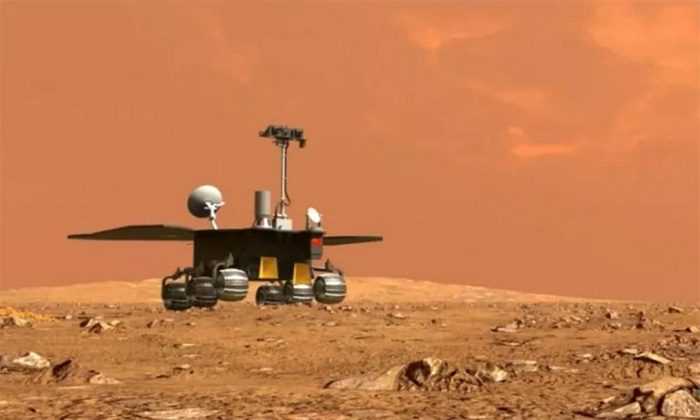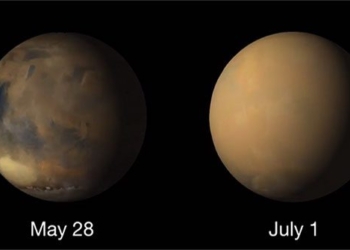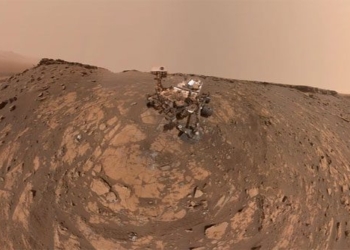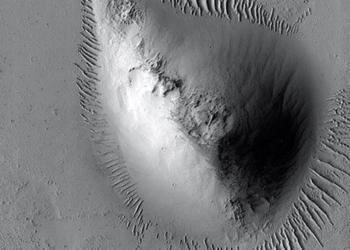The Mars Rover Zhurong Cannot Wake Up After Hibernation Due to Solar Panels Covered by Thick Dust.

Zhurong Rover has operated for 358 days on Mars.
After months of silence, Chinese government officials revealed the fate of the Mars exploration rover that stopped moving nearly a year ago, Live Science reported on April 27. Zhurong , China’s first Mars rover, is unlikely to generate enough power to wake up as expected after hibernation due to dust covering its solar panels, Zhang Rongqiao, chief designer of the Mars exploration program, shared with CCTV.
This situation has long been considered the most likely cause preventing Zhurong from reactivating since it went into hibernation in May 2022. The rover was scheduled to wake up in December 2022 when the northern hemisphere’s winter on Mars ended, and sunlight became more abundant, but it remained silent. In March 2023, NASA’s images showed the Zhurong rover in the same position where it had hibernated for nearly a year. Researchers hoped that an unusually cold winter was the cause and that the rover could wake up as temperatures rose. However, Zhang’s comments on April 25 indicated that the culprit was Martian dust.
The Zhurong rover operated for three months longer than its initial mission, exploring the vast plains known as Utopia Planitia on the red planet for 358 days before becoming inactive. During that time, the rover traveled 1,921 meters. Zhurong landed on Mars in 2021 with the goal of studying the planet’s geology, magnetic field, and weather.
According to a description in 2021 in the journal Innovation, the rover carried six instruments, including a ground-penetrating radar, a terrain composition detector, a surface magnetic field detector, a multispectral camera, a meteorological station, and a Martian terrain orientation camera. Throughout its operational period, Zhurong took a selfie along with many surface images. It also recorded the sound of the wind and conducted experiments to transmit information between the European Space Agency (ESA) and the China National Space Administration (CNSA).





















































